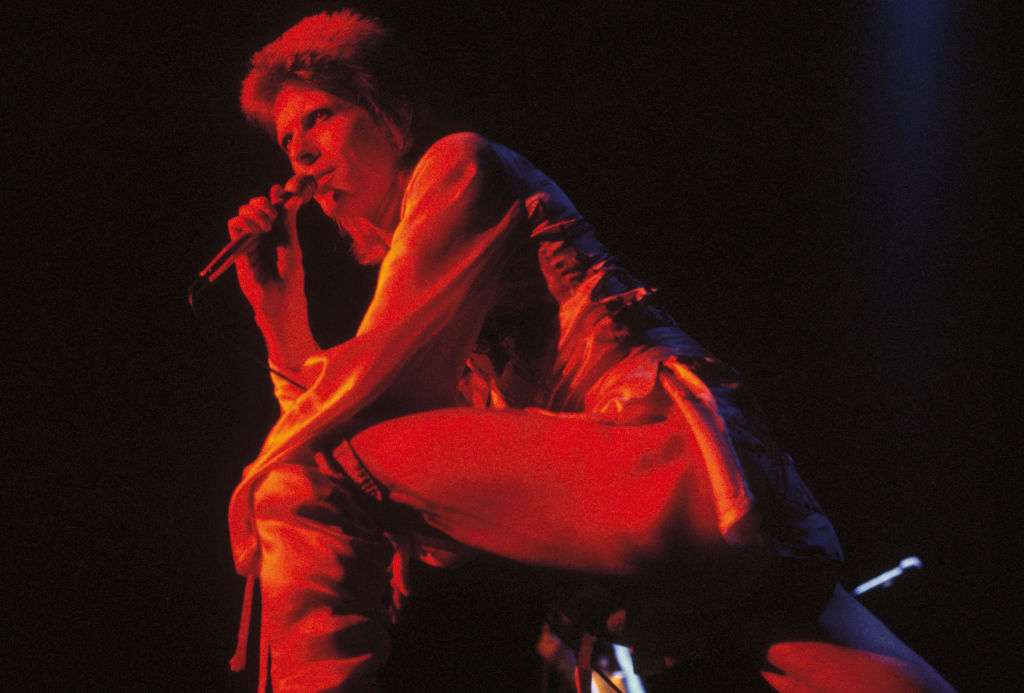
‘Sinners’ Honored Juke Joints. Today, They’re Fighting to Stay Open.
April 25, 2025
The Conversation That Moviegoers Don’t Need to Be Having
April 25, 2025
Dutch historian Rutger Bregman can hardly complain about a lack of media attention. His works are on the shelves in bookshops around the world — making him an intellectual superstar. His new book, Moral Ambition: Stop Wasting Your Talent and Start Making a Difference, immediately hit the top of the best-seller list in the Netherlands upon its publication in March 2024. The book was launched there at the same time as the School for Moral Ambition, an NGO of which he is the cofounder.
It is, quite appropriately, Bregman’s most ambitious project to date, following his previous work on universal basic income and progress and his 2019 book, Humankind: A Hopeful History — a huge publishing success also in English translation. Now he says he not only wants to write, but also to take action. The School for Moral Ambition should become nothing less than a global movement.
With his latest book, Bregman takes up ideas that have gained much traction in the English-speaking world, for instance with the charitable movement effective altruism (EA). English philosopher Benjamin Todd, one of its founders, had already made a plea similar to Bregman’s in his 2016 book, 80,000 Hours.
Bregman rails against “waste of talent.” Many well-paid and successful people choose a secure career, instead of pursuing change and “making a difference.” Other measures of success are needed, he insists, such as doing good and social impact. What he believes is lacking is “moral ambition.”
Bregman clarifies this using a classification into four categories. People who are neither ambitious nor idealistic are stuck in bullshit jobs. People who have ambition but no ideals usually end up as consultants, marketers, bankers, or lawyers. Then there is a group of people who get nothing done, the “woke activists.” And finally, you have what Bregman sees as the perfect, happy combination: people driven by both ambition and ideals.
This may perhaps sound like a useful division, and like a promising point of departure for someone yearning to see real change in the world. Yet the real problem of the book is that Bregman’s seemingly idealistic plea is underpinned by a conventional idea of what “success” is, limited by the division of economic power.
From the outset, it is clear that Bregman is preaching to people like himself: primarily university graduates with sufficient material security to pursue entrepreneurship. In short, a group with a certain amount of social and cultural capital and, above all, disposable assets. As his NGO’s site tells us in the recruiting text: “You have a neat CV and a great job. You are what they commonly call ‘successful.’”
As a member of the managerial class, Bregman is addressing his counterparts. As for moral ambition, we need have no illusions about the order: first comes success, then morality. Or as he formulates his recipe: “You take the ambition of a careerist and add a dash of idealism.”
Not coincidentally then, Bregman is toughest on people who have ideals but are said to be devoid of ambition. These figures, who Bregman observes mainly on the left, he introduces in the guise of the “noble loser”: someone who has “good intentions” but achieves nothing. Leftist idealists — “woke activists,” vegans, climate activists, and radical critics of the system, all lumped together — overestimate the importance of “consciousness” and fail to achieve practical results. Bregman approvingly quotes Margaret Thatcher: “No one would remember the Good Samaritan if he’d only had good intentions; he had money as well.”
This is nothing new, but a well-known diagnosis shared even by many on the left. Articles and books have been written full of such analyses. To really change anything, a left-wing movement needs an organization, a plan — and yes, money too. But Bregman sees in these criticisms sufficient reason to embrace and even glorify a conventional idea of success. It is, above all, “impact.” He endorses the typical neoliberal economization of morality. Now a person who isn’t “successful” is not only socially but also morally a “loser.”
For Bregman, changing the world starts with yourself. Moral Ambition is thus first and foremost a self-help book. It gazes at the world from a thoroughly individualistic perspective. It is ultimately about developing your “talent” and achieving your “ideals.” But without further context, it is not clear what the “good” is that needs doing. From this self-help perspective, the important fights that Bregman mentions — abolitionism in the United States or organized resistance to the persecution of Jews during the Nazi occupation of the Netherlands — are reduced to anecdotes about Great Personalities. They’re never seen for what they truly were: social and political movements.
Yet those who do have a systemic critique of the status quo, rather than just seeking to act as individuals, are caricatured. Bregman talks about “privileged types who, as soon as it comes to their own responsibility, cry out that we should talk about the system first.” Critique of the system merely exists as a cover for passing the buck to someone else. Yet surely most serious left-wingers accept the importance of individual action and responsibility. It is just that these need to be based on a larger systematic analysis, instead of taken as acts of an all-sovereign individual.
In sum, Bregman rejects all systemic criticism and prefers moral individualism to politics. Yet it would be a mistake to see the individualism here as “apolitical.” Whereas Humankind still contained a passionate plea for democratic participation, in Moral Ambition humanity is described as “a herd animal.” Although in a democracy the people are supposed to rule, Bregman explains, in reality the majority are fundamentally passive. Only “intransigent minorities” can accomplish lasting change.
There is some truth to his critique of movements that did enjoy widespread support, such as Occupy and Black Lives Matter, when he states that “consciousness and change are not the same thing.” But for him, real change can only be effectuated by a successful enterprise. What we need is “the new Tesla of the charity sector” or a “Hogwarts for do-gooders.” Here Bregman names Elon Musk and Peter Thiel as model entrepreneurs. It is telling that, for Bregman, Musk’s economic success has always been unrelated to his politics, which is why more recently he mainly accuses the Musk of being “immoral.”
One other glaring example of Bregman’s political blindness did appear in the Dutch launch of his book on the talk show Buitenhof, where he discussed Ukraine. Instead of looking at the war mobilization in all its complexity, doing good in this context appeared to directly translate into military investment: “You have to buy grenades for Ukraine.”
The great paradox of Bregman’s plea is that despite all the criticism of idealists who favor consciousness over action, moral ambition itself is ultimately just a call for a change of consciousness. It is, Bregman himself says, ultimately a “way of seeing,” an “infectious mindset.”
At the beginning of Moral Ambition, Bregman warns us that the book “does not offer comfort, but discomfort.” The opposite is true: he makes it all too easy for us. The ideal he outlines is the ideal of his own privileged bubble; behind the rhetoric of changing the world, upon closer examination we find a very conventional idea of success. It embraces the all-too-common narcissistic ethos in which the very special person who “makes a difference”’is put above the cause. It is, as he noted on Buitenhof, all about “the story you want to tell your grandchildren.” Above all, Bregman wants a moral hero story, with a hero who “wins” — and a “loser” in the idealist left-winger.
Great Job Helmer Stoel & the Team @ Jacobin Source link for sharing this story.






